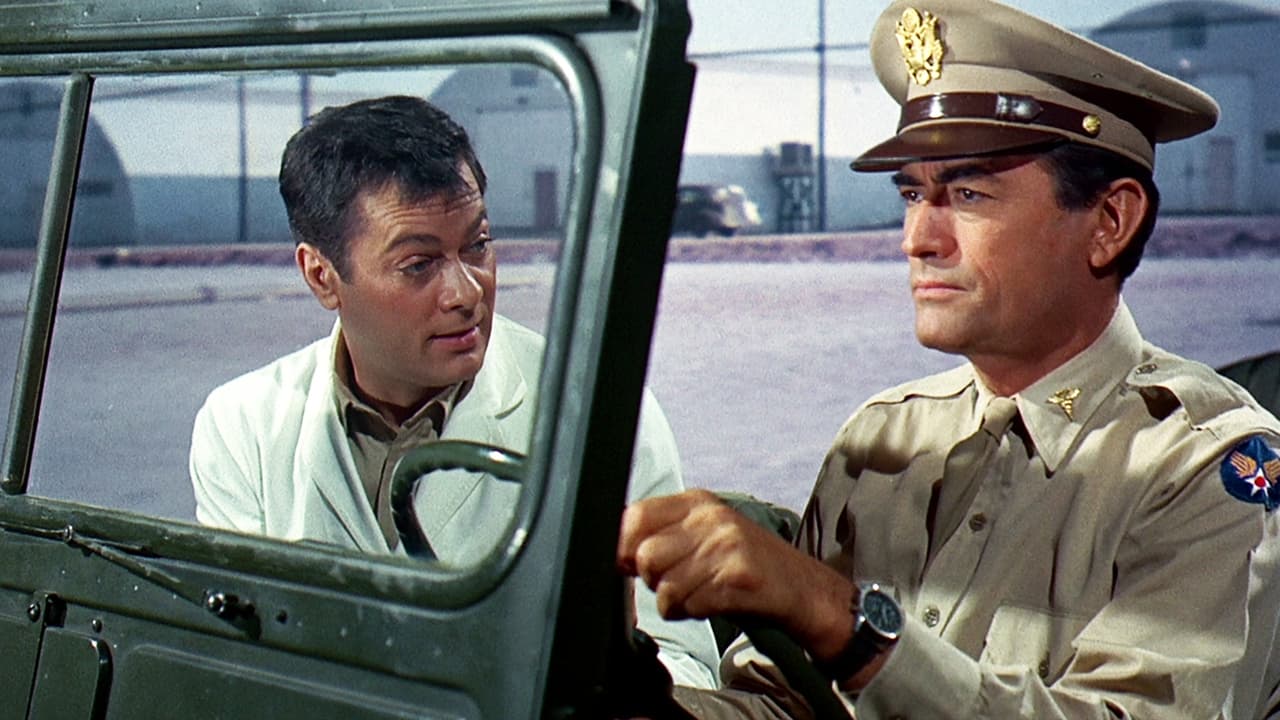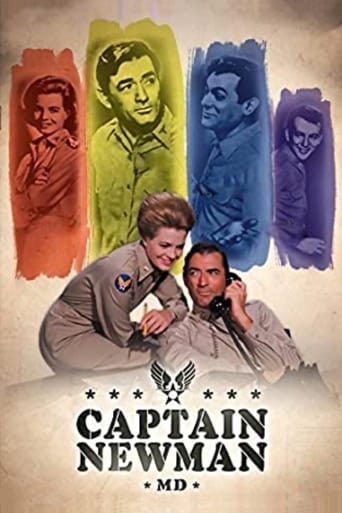

For reasons I don't understand Captain Newman MD has always been singled out for criticism, most particularly directed at Gregory Peck saying he's too stiff for comedy. I don't agree on a number of levels and this is one of my favorite films with him.First and foremost Peck's role is not one of comedy. What he does in the film is serve as Tony Curtis's straight man. Now his role is a comic one and very funny indeed.Peck runs the psychiatric ward in an Army Air Corps Hospital out in the Arizona desert during World War II. There's no way a man like Peck would be in the command of George S. Patton who just didn't believe in Peck's whole profession. And in Patton like fashion if someone isn't shipped back to command in twelve weeks, Peck hears about it.Captain Newman, MD is a serious film about such people and they are at the heart of the story with Peck trying his best to fix the broken minds and psyches in our Armed Forces. Three of his cases are the drunken, guitar playing corporal Bobby Darin, the catatonic flier Robert Duvall, and Eddie Albert the colonel who has gone psychotic. Peck has a mixed record of success with these three and with others in his ward.Bobby Darin got an Academy Award nomination for Best Supporting Actor, it's a fine performance but he lost that year to Melvyn Douglas for Hud. But personally I feel that Eddie Albert stole Captain Newman, MD from the rest of the cast. It's a tossup between this role and Attack for the best performances of Albert's carer.Robert Duvall always credited Peck with giving him a good start to his long career with key roles in To Kill A Mockingbird and Captain Newman, MD. Funny thing is that Duvall has little dialog here and none in To Kill A Mockingbird. Far from the well spoken attorney who was consigliere to The Godfather. He's matched in his performance by his wife played by Bethel Leslie who is apparently much influenced by Grace Kelly in her performance. She's his prim and proper wife who tries to stir his interest in an attempt at an unusual kind of shock therapy.Aiding Peck in his treatment of his patients are nurses Angie Dickinson and Jane Withers and orderlies Tony Curtis and Larry Storch. In his memoirs Tony Curtis says that he got along very well with Gregory Peck who he says was one of the best class acts in Hollywood. He didn't get along all that well with director David Miller who wanted Curtis to be more ethnic in his interpretation of Corporal Jackson Leibowitz. Curtis won out and I think he was right in this case. A friend of Tony Curtis's since childhood is Larry Storch and because of that Storch appears in a few films with Curtis. As Peck was Tony's straight man, Storch becomes his comic foil in a couple of scenes and they work well together.Captain Newman, MD is a classic film, both entertaining and thought provoking, about the treatment of mental breakdowns among our military. As we certainly now are a country at war, Captain Newman, MD has a relevancy today that is timely. Absolutely do not miss it when it is broadcast.
... View MoreGregory Peck is probably best know for playing strong, benevolent types like Atticus Finch, and in many ways, the title role in this film does not take him far from that. What makes this film memorable is not Peck so much as it is his outstanding supporting cast. Bobby Darin, best known as a singer, show acting chops here few thought he possessed. Tony Curtis is strong and fits his role perfectly,Angie Dickinson as a nurse with brains and beauty, and Eddie Albert as you've never seen him. His performance alone merits watching this movie, but enjoy the story and the entire cast in a film that gives those who missed it a glimpse into what Hollywood was putting out in the 60s.
... View MoreWith all due respect to HAL-900, Bobby Darin's excellent portrayal as "Little Jim" HAD to be less than subtle in order to allow the also very excellent Robert Duval to play his character as subtly as he did. Gregory Peck is excellent as the stalwart Psychiatrist dealing with medical as well as bureaucratic challenges. Angie Dickinson IS pretty much just for show, but she NEVER looked better. Yes, Peck's 'drunk' is a tad corny but necessary to show that he was not invulnerable to the suffering that whirled about him. Tony Curtis and Larry Storch provide (necessary) comic relief. Modern Psychiatry was still in it's infancy when this movie is set and a long way from where it is today when the movie was produced. Gregory Peck starred in a LOT of excellent films and I number CAPTAIN NEWMAN, MD among them. It is part of TCMs library so catch it if you can.(Added 11/01/08)Huzzah! A new GREGGORY PECK DVD collection will be released November 4th, 2008 and CAPTAIN NEWMAN, MD is one of the titles included along with TO KILL A MOCKINGBIRD, CAPE FEAR, ARABESQUE and THE WORLD IN HIS ARMS.
... View MoreFrom humor to tears, drama to terror. Very few movies have had the lasting impact of Captain Newman, MD. Once you watch this movie, you will want to see it again and again. Gregory Peck is his faultless acting self. Bobby Darin puts on quite a show while on sodium-pentothal. Eddie Albert is about as creepy as possible. Larry Storch and Tony Curtis will have you cracking a rib laughing.The behind-the-lines wartime drama is probably the finest of any movie of its eraThis one easily rates 10 stars.Harv
... View More